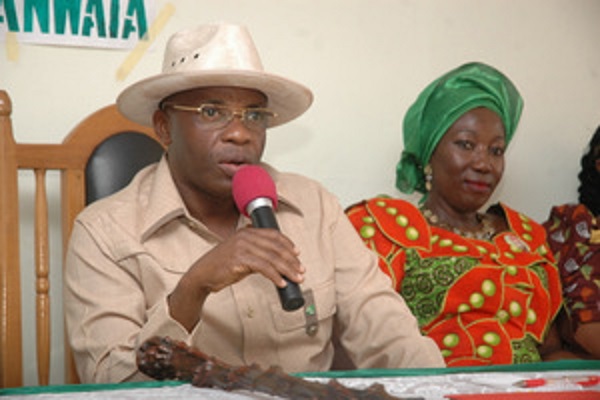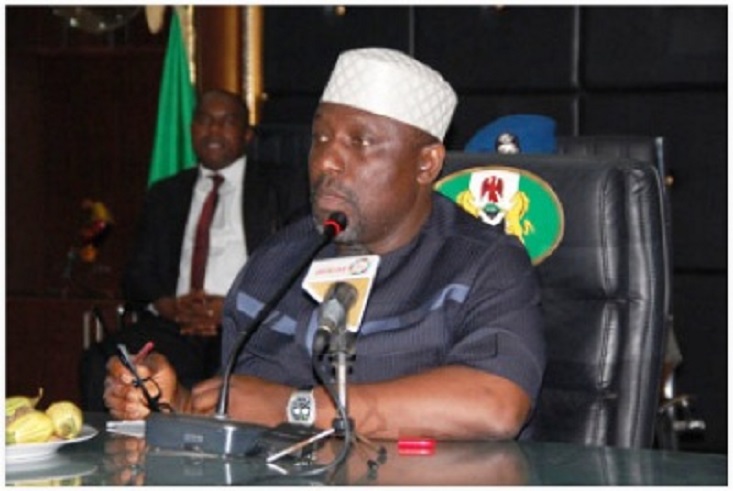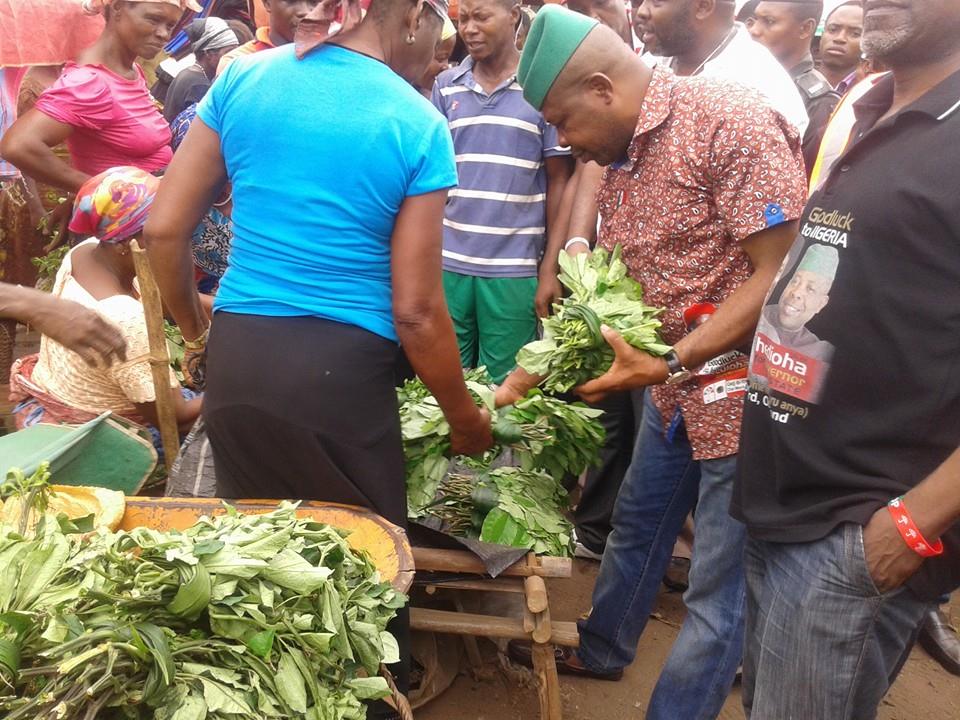The 2015 governorship election in Imo State was practically a repeat of history as the Independent National Electoral Commission declared the election inconclusive. Damian Duruiheoma reports.
History was again made in Imo State Sunday night when the Independent National Electoral Commission, INEC, declared the governorship election in the state inconclusive. The reason, according to the state’s Returning Officer, Professor Ibidapo Obe, was because some wards and polling units were cancelled in 23 local government areas of the state that did not include Ideato North, Ideato South, Ahiazu Mbaise and Owerri Municipal council areas.
In the results so far released, Governor Rochas Okorocha and candidate of the All Progressives Congress, APC scored 385,671 votes to lead his major rival, Hon. Emeka Ihedioha and Peoples Democratic Party, PDP candidate, who polled 306,142 votes. The margin of lead is 79,529 votes.
However, the figure, according to Ibidapo-Obe, is not enough to declare the governor winner because the number of cancelled votes in the affected areas is 144,715. as a result of this, the returning officer declared the election inconclusive, saying a new date would be announced for a supplementary election in the cancelled wards spread across 23 local government areas.
The governor was initially thought to have won the election after he garnered 385,671 votes compared to the 306,142 votes scored by the candidate of the Peoples Democratic Party, Emeka Ihedioha.
The APC candidate is ahead of his PDP counterpart, Ihedioha by 79,529 votes, which is by far lower than the 144,715 votes cancelled by INEC as a result of irregularities in some wards occasioned by ballot box snatching and heavy violence.
INEC’s verdict on the Imo election is a repeat of what happened in the April 26, 2011 governorship election in the state.
The commission had at the time declared the election inconclusive because it did not hold in Ohaji/Egbema, Mbatioli, Ngor-Okpala and Oguta Local Government Areas as well as in Orji Ward in Owerri North Local Government Area.
Before that election was declared inconclusive, results for 24 of the state’s 27 local government areas had been announced, with Okorocha then of the All Progressives Grand Alliance, APGA, leading in 12 local government areas with a slim total margin while the then governor, Ikedi Ohakim, also led in 12 local government areas but trailed Okorocha in the total votes garnered.
Just as in this one, a supplementary election was then fixed for May 6, 2011, which Okorocha went on to win.
However, unlike the 2011 election, where the two candidates then were running neck and neck before the supplementary election, there is likely not going to be any difference in the pattern of results that had come in so far from the forthcoming supplementary election.
This is because less than 40 percent of the registered voters participated in the 2015 elections in the state. According to the INEC records, out of the 1,761271 registered voters in the state, only 796,958 voters participated for accreditation in the governorship and house of assembly elections.
As a result of this, political watchers are of the belief that out of the remaining 144,715 votes across 23 LGAs in the state, not up to 100,000 voters will turn up to vote.
With this, the odds favour Okorocha to return re-elected. If he eventually wins the supplementary election being planned by INEC this time, the APC would have succeeded in holding on to the only state it controls in Nigeria’s South-East geo-political zone.
However, the PDP might eventually be declared winner of the governorship election in with simple majority as most of the areas where supplementary elections would hold are its strong holds.
For instance, Oru East LGA, where elections did not hold in six wards is a PDP area. Also, wards like Uvuru in Aboh Mbaise, Dimeze in Ihitte Uboma, Ekwe in Isu as well as those of Ohaji Egbema, Ngor Okpala and Oguta LGAs are all the party’s strong holds.
The PDP which glossed victory in seven out of the 27 local government areas of the state will consolidate its grip on the ultimate prize by winning the most number of votes, having garnered the required twenty five percent in up to eighteen local government areas, which constitutes two third of the twenty seven local government areas of the State.
Based on this, it is not uhuru yet for the supporters of the ruling party, APC, who had since Sunday night gone into frenzy with celebration.









